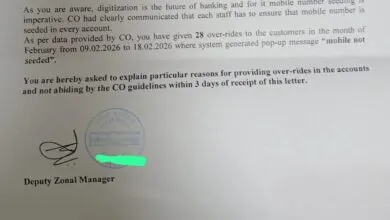RBI to Introduce New Licensing Framework for Point of Sales (POS) Operators in India

The Reserve Bank of India (RBI) is expected to introduce a new category of licenses in the financial services sector. These licenses will be specifically for operating in the point of sales (POS) business, with the aim of tightening the offline payment ecosystem. Third-party POS operators, such as Pine Labs, MSwipe, Paytm, and BharatPe, will need to obtain these licenses to continue their operations. This move is expected to have a significant impact on these players.
The objective behind introducing this licensing framework is to establish a level playing field between online and offline payment operators and ensure harmony in their operations. Regulated entities like banks and non-banking financial companies (NBFCs) that are already involved in the POS business will not be affected. However, third-party operators will be required to obtain a license to continue their business.
The rapid growth of third-party operators in this space has also played a role in favor of implementing this licensing system. Third-party offline payment operators are estimated to maintain daily average balances of ₹400 crore, compared to ₹1,000 crore in the online space. It is considered prudent to introduce regulatory changes before the offline market becomes too large.
To provide some context, in recent years, banks have chosen to operate through third-party POS players rather than handling it in-house due to the ease of doing business. Similar to payment aggregator licenses, POS operators may have to comply with certain norms, such as a minimum net worth of ₹25 crore and meeting the fit and proper conditions set by the RBI.
An email sent to the RBI regarding this matter has remained unanswered as of now. If the licenses become mandatory, it will be interesting to see if players like BharatPe and Paytm, who are still awaiting RBI’s approval for payment aggregation, will be allowed to operate in the offline POS segment.
The need for a licensing framework in this area has been emphasized for three main reasons:
- Cash loans on credit cards: There has been an increase in cash loans on credit cards, particularly in the informal sector. The industry has witnessed a surge in high-value, one-time swipes at POS, and there are concerns that the merchant handling the POS may be providing cash for these transactions. The current system, where third-party operators are responsible for the know-your-customer (KYC) process, is not foolproof in detecting and acting against deficiencies.
- Data storage of POS transactions: The storage of POS transaction data is currently governed by agreements between the issuing bank and third-party operators. Different operators store data for varying durations, ranging from 90 days to six months or even a year, based on internal agreements. To ensure security and uniformity, there is a need for harmony in these data storage practices.
- Fund management concerns: There are concerns related to fund management with third-party players. Settlement to merchants is not instantaneous, and there is usually a one-day delay. The risk arises from unregulated entities holding cash, which poses a significant risk if a fly-by-night operator decides to wind down with the money. While there have been no major lapses in this regard so far, the exponential growth of the business in recent years has made this a key concern for regulators.
In summary, the introduction of a licensing framework for third-party POS operators aims to strengthen the offline payment ecosystem, ensure regulatory compliance, and address concerns related to cash loans, data storage, and fund management.
